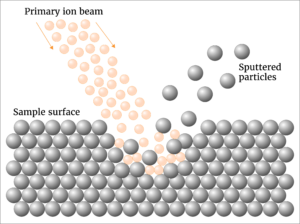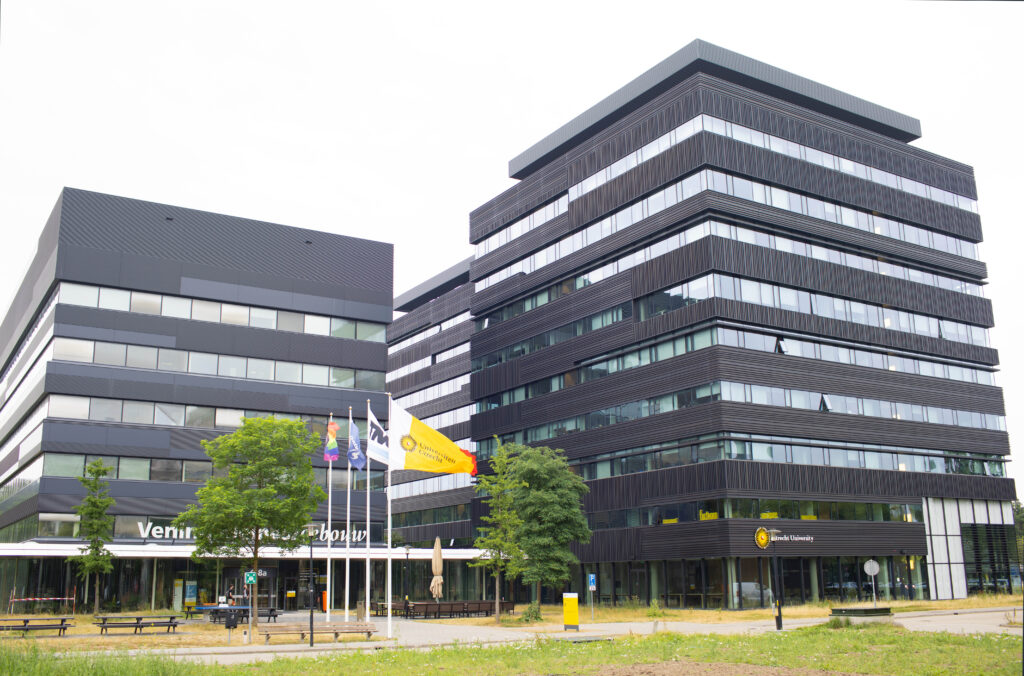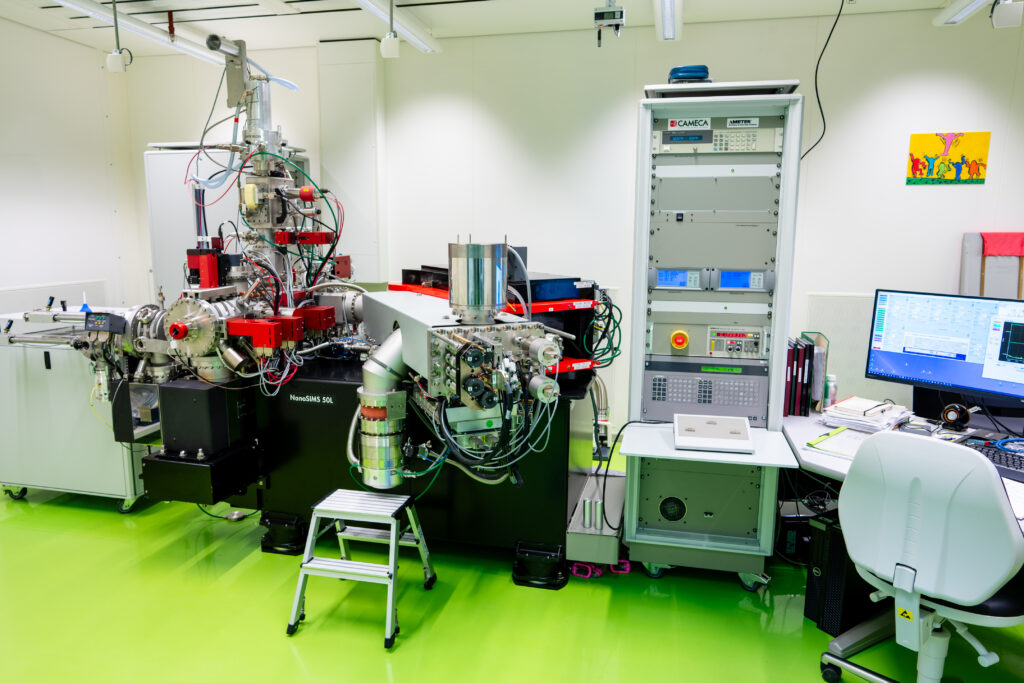NanoSIMS technique

Schematic diagram of the principle behind secondary ion mass spectrometry (SIMS).
NanoSIMS is an analytical technique that uses a finely focused beam of primary ions to erode the sample surface (see schematic diagram). The secondary ions (atomic and molecular) produced in this process are then analyzed by a mass spectrometer.
Although the basic principle is rather simple, the technical realization for achieving high sensitivity, mass resolution and spatial resolution requires some very sophisticated technology. This technology is put together in an instrument produced by Cameca. In our lab, we operate Cameca’s NanoSIMS 50L model equipped with the standard Cs+ ion source and the Hyperion H201 O– source.
Read next about:
→ Strengths & limitations
→ Sample requirements & preparations
→ Look@NanoSIMS software
→ Publications & gallery
Go back to:
→ Facility access & services
→ National NanoSIMS facility



